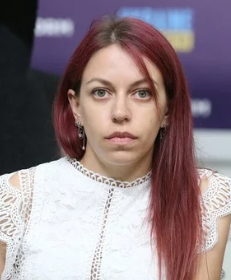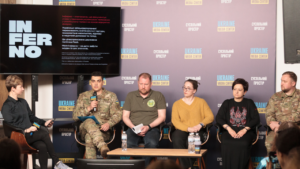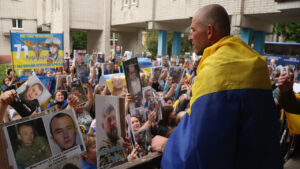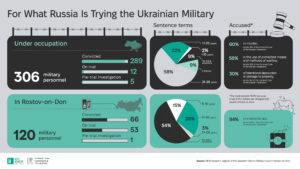A long way home. Or how Ukrainian POWs are forced to reject exchange and take Russian citizenship
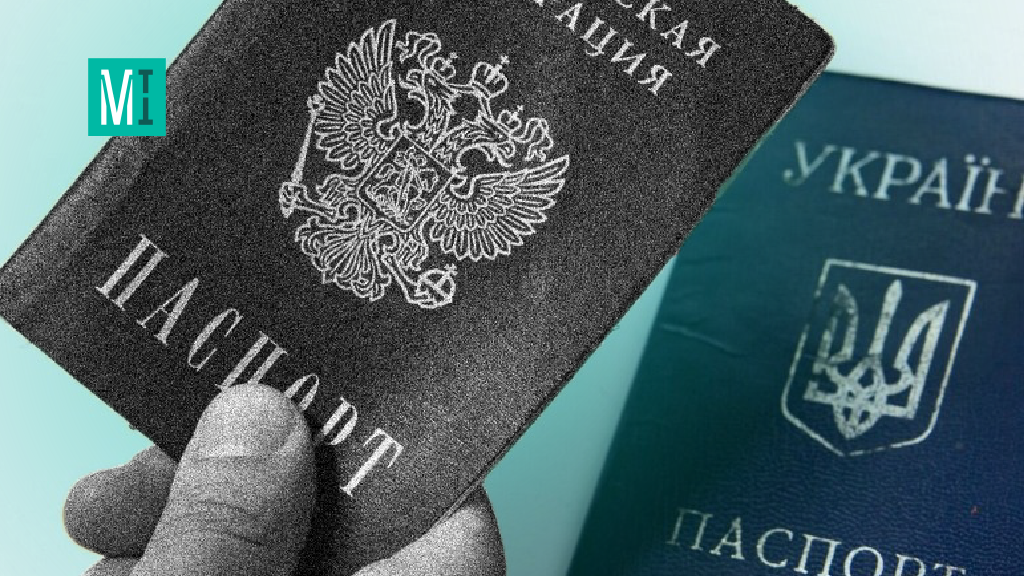
Ongoing torture, starvation, and the lack of personal care products make up a typical day for Ukrainian soldiers captured by Russia. They are forced to reject POW exchange and desert to the enemy. Despite inhumane treatment, most POWS do not agree to cooperate with the aggressor country, but some cannot withstand torture.
A movie with “genuine repentance”
POW films are Russian propagandists’ favorite form of “art.” Once captured, the person is given and forced to read an existing text with emotion at the camera, so that the viewers behind the screen believe what he is saying.
MIHR journalists have found many videos in Russian Telegram channels where POWs confess to allegedly committing crimes against civilians, expose the Ukrainian command for allegedly leaving them to their own devices, and call on their brothers-in-arms to lay down their arms and surrender because Russia supposedly wants peace.

Russian correspondents often record “interviews” with Ukrainian prisoners at gunpoint
Anna and Yaroslav were captured at one time, but in different areas. Both were forced to record a video confessing to something that had never happened.
“I was administering medical aid to our wounded when they called me, put me against the wall, gave me some text, and said: ‘You must say this on camera now. If you don’t, I’ll shoot you.’ For you to appreciate the situation, one is holding the camera while the other one is pointing his machine gun at me, reloading it and taking safety off,” the girl says.
At first, she refused to read out what was written there, but one demonstration shot at her feet left no other choice. “He said he would shoot me like a dog if I didn’t do what I was told to,” Anna adds.
Yaroslav was approached by Russia 24 reporters and asked how he had been captured and why he had been shooting at the “fraternal nation”: “I was told that my future depended on what interview I gave.” The man was threatened that, as long as he was beyond Russia, they could do anything to him, for example, shoot him for an alleged attempt to escape.
“It gotta be that way”: crimes that never happened
Shooting civilians and obstructing the so-called “special military operation”— these are the most common crimes attributed to captive Ukrainians. While interrogated, apart from questions about foreign weapons and mercenaries, they are constantly asked whether they have killed civilians, seen others kill civilians, fought and killed people from “Luhansk and Donetsk People’s Republics.”
When Yaroslav was brought to Taganrog, three other men in his cell were accused of crimes they had never committed. They were regularly taken from the cell, beaten, and tortured with water to force them to take the blame. After a week of such torture, the men broke down and signed what they were given to sign.

“The investigator hardly listened to me during interrogations. He already has everything printed out, and you just have to sign it. And you can’t opt out, because you may never get out of there,” explains Hennadii, another former POW.
The men say that several crimes are pinned on one captive. They remember some investigators, who obtained confessions through torture, but kept up the abuse saying, “Yes, we made it all up, but it gotta be that way.” Operatives promise mountains of gold to those who volunteer to report the crimes of the Ukrainian military.
“One guy told them he had seen civilians shot. So, the investigator almost jumped with joy, gave him a cigarette, a Snickers bar, and a bun. In the early hours, the boy was taken away, we thought, for an exchange. But it turned out later that nobody was exchanged on those days. Apparently, he stayed in Russia,” says the released POW.
If you want freedom, take Russian citizenship
The ultimate thing that Ukrainians in Russian captivity are forced to do is reject exchange and take Russian citizenship. For this purpose, supervisors and operatives of Russian prisons break Ukrainians mentally. POWs are repeatedly told that Ukraine has abandoned them and considers them traitors.
Interrogations often start with the question, “Are you taking Russian citizenship?” When the prisoner turns it down, saying that he is Ukrainian, they beat him up, stating that Ukraine no longer exists, that it is already under Russia.

Prisoners are often promised release for swapping their Ukrainian passport for a Russian one
“So brainwashed by such fake news, some people actually agreed to take Russian citizenship. They knew their hometowns were occupied and thought this could speed up their exchange and return to their families,” the former POWs say. “We explained that it was all a hoax. If he were to be released, he would be handed weapons and forced to fight against his own people.”
Anna says that women were also forced to sign cooperation documents, and physical force would also be used against someone who refused. People were given call signs and told they were now Russian spies and, if the Russian Federation ever called them, they had to cooperate with the Russian intelligence services.
“Of course, nobody was going to do any of this. But back then, you just couldn’t turn it down—you were beaten up and humiliated so much that your refusal could make things much worse,” says the girl.
Former POWs whom MIHR spoke with recall trying to discuss neutral topics with inmates, since one could never know ahead which prisoner would accept the Russians’ terms.
“After staying in these terrible conditions, people are invited to reject exchange, promised transfer to a good camp where they could stay until the war ended,” says a former POW who wants to remain anonymous. “Some people agree, but, eventually, they are neither exchanged, nor transferred to a place with better conditions. That’s why they keep going around the penal facilities with us.”
The ex-POW Hennadii also recalls how prisoners are wakened in the middle of the night and urged to sign a piece of paper, choosing just “yes” or “no.” Half-asleep, many did not even read what they were signing. “What they later add is that you reject the exchange and then serve in ‘Luhansk and Donetsk People’s Republics.’ You are too sleepy and only see one word, ‘exchange,’ and skip the rest. So, they indeed put their signature next to “yes,’” the man notes.
The ex-POWs do not know what happens to those who reject the exchange and take Russian citizenship. It is believed that, most probably, they are still held captive, but separately from the others.


